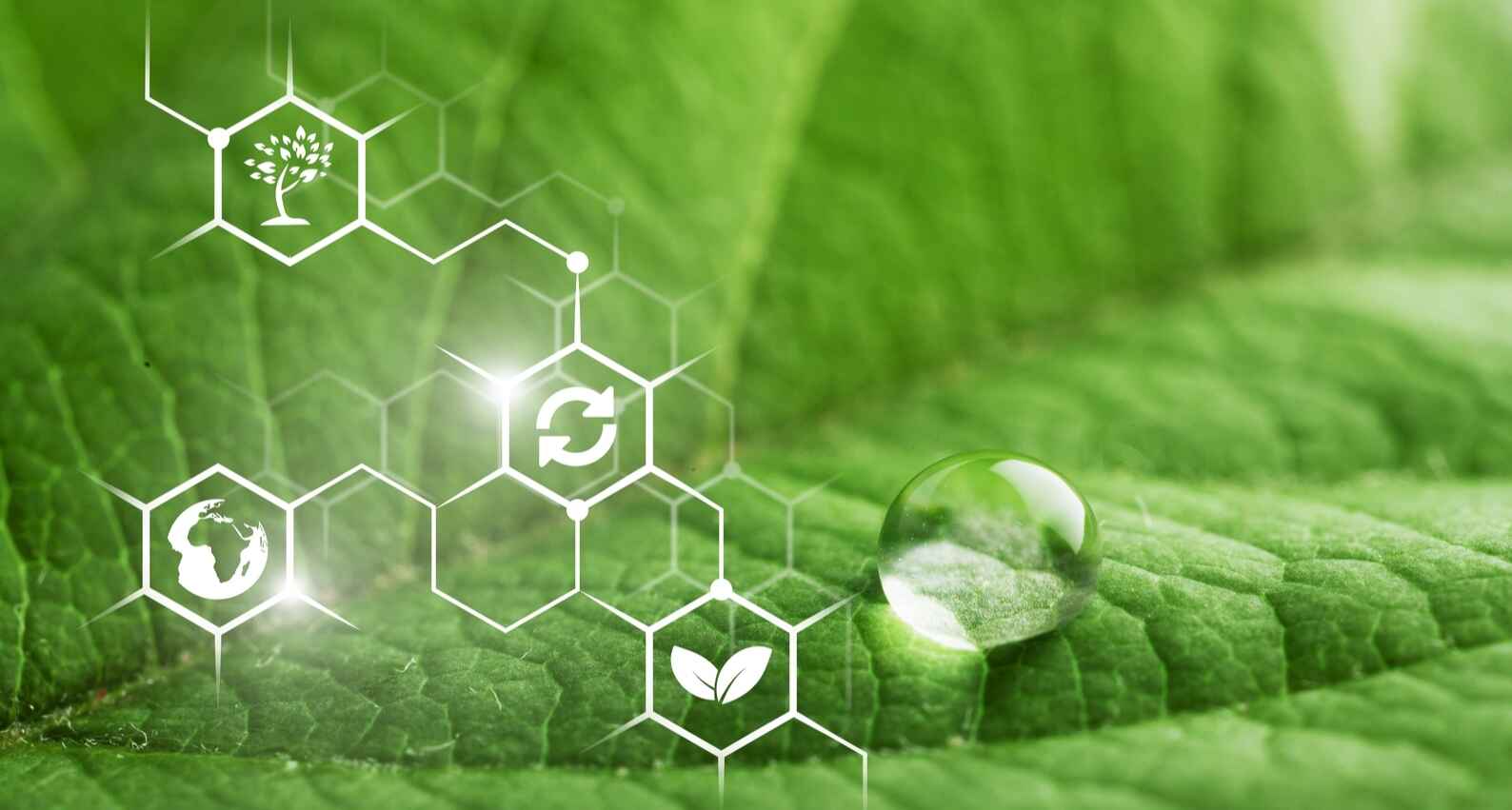
When it comes to the world of chemistry, sustainability is a hot topic that continues to gain momentum. Sustainable chemistry focuses on developing chemical processes and products that have minimal impact on the environment while still meeting societal needs. In recent years, there have been significant advancements in this field, with scientists and researchers finding innovative ways to reduce waste, conserve resources, and minimize pollution.
In this article, we will delve into the fascinating world of sustainable chemistry and explore 11 intriguing facts that shed light on its importance and potential. From renewable energy sources and biodegradable materials to green manufacturing processes and carbon-neutral solutions, sustainable chemistry is revolutionizing the way we think about chemical innovation. So, grab your lab coat and safety goggles as we delve into the exciting realm of sustainable chemistry and uncover the incredible possibilities that lie ahead.
Key Takeaways:
- Sustainable chemistry minimizes environmental impact by promoting efficient resource use, reducing greenhouse gas emissions, and creating eco-friendly materials and renewable energy sources.
- Sustainable chemistry drives innovation, economic growth, and shapes the future of industries while contributing to the United Nations Sustainable Development Goals for a greener, more sustainable future.
Sustainable chemistry aims to minimize environmental impact.
Sustainable chemistry focuses on developing processes and products that have minimal adverse effects on the environment, from reducing waste and energy consumption to utilizing renewable resources.
It promotes the efficient use of resources.
Sustainable chemistry aims to maximize the use of raw materials, minimize waste generation, and optimize energy efficiency to ensure a more sustainable and circular economy.
Green chemistry is a key component of sustainable chemistry.
Green chemistry principles guide the development of sustainable chemical processes by minimizing hazardous substances, promoting safer alternatives, and reducing the consumption of non-renewable resources.
Sustainable chemistry contributes to reducing greenhouse gas emissions.
By developing cleaner and more energy-efficient manufacturing processes, sustainable chemistry plays a crucial role in mitigating climate change and achieving a more sustainable future.
It enables the development of eco-friendly materials.
Sustainable chemistry has led to the creation of innovative materials, such as biodegradable plastics, sustainable fibers, and environmentally-friendly packaging solutions.
It fosters the development of renewable energy sources.
Sustainable chemistry plays a vital role in the advancement of renewable energy technologies, including the development of efficient solar cells, innovative battery designs, and sustainable fuel options.
Sustainable chemistry promotes safer alternatives to hazardous chemicals.
Through the use of greener solvents and the development of non-toxic substances, sustainable chemistry aims to reduce the risks associated with the use of hazardous chemicals in a wide range of industries.
It supports the recycling and upcycling of materials.
Sustainable chemistry plays a crucial role in developing processes that enable the recycling and upcycling of materials, reducing waste and extending the lifespan of valuable resources.
Sustainable chemistry drives innovation and economic growth.
The adoption of sustainable chemistry principles stimulates research and development, driving innovation and creating new business opportunities in a rapidly evolving green economy.
It is essential for achieving the United Nations Sustainable Development Goals.
Sustainable chemistry contributes to various Sustainable Development Goals, including responsible consumption and production, climate action, and affordable and clean energy.
Sustainable chemistry is shaping the future of industries.
From pharmaceuticals to agriculture, sustainable chemistry is revolutionizing industries, driving the development of environmentally-friendly products and processes.
In conclusion, the 11 fascinating facts about sustainable chemistry highlight its crucial role in creating a greener, more sustainable future. By incorporating the principles of sustainable chemistry into various industries, we can reduce environmental impact, conserve resources, and foster economic growth.
Conclusion
In conclusion, sustainable chemistry is a groundbreaking field that offers incredible potential for addressing environmental challenges and promoting a greener future. By focusing on the principles of green chemistry, such as utilizing renewable resources, reducing waste, and minimizing the use of hazardous substances, sustainable chemistry aims to develop innovative solutions that are both economically viable and environmentally friendly. From reducing carbon emissions to developing bio-based materials, sustainable chemistry is at the forefront of creating a more sustainable and resilient world.Through research, education, and technological advancements, sustainable chemistry has the power to revolutionize industries and pave the way for a more sustainable and balanced planet. By adopting sustainable chemistry practices, we can shape a future that ensures the well-being of both the environment and society. Embracing sustainability in chemistry is not only crucial for the preservation of our planet, but also for the betterment of future generations. Let us embrace the fascinating world of sustainable chemistry and work towards a more sustainable and prosperous future.
FAQs
Q: What is sustainable chemistry?
A: Sustainable chemistry is a branch of chemistry that focuses on developing chemical processes, materials, and products that have minimal impact on the environment while promoting economic viability and social well-being.
Q: Why is sustainable chemistry important?
A: Sustainable chemistry is important because it offers innovative solutions to reduce pollution, conserve resources, and create a more sustainable future. It helps address pressing environmental challenges, such as climate change, and promotes the responsible use of chemicals.
Q: How does sustainable chemistry contribute to a greener future?
A: Sustainable chemistry contributes to a greener future by promoting the use of renewable resources, reducing waste generation, minimizing the use of hazardous substances, and designing processes that have a lower environmental impact.
Q: What are some examples of sustainable chemistry practices?
A: Examples of sustainable chemistry practices include developing bio-based materials, designing more efficient and eco-friendly chemical processes, implementing recycling and waste reduction strategies, and promoting the use of sustainable solvents and catalysts.
Q: How can individuals contribute to sustainable chemistry?
A: Individuals can contribute to sustainable chemistry by adopting eco-friendly consumer habits, supporting companies that prioritize sustainability, promoting awareness about sustainable practices, and advocating for policies that encourage the adoption of sustainable chemistry principles.
Sustainable chemistry's potential to revolutionize industries and create a greener future is truly remarkable. From minimizing environmental impact to promoting safer alternatives, this field holds the key to unlocking a more sustainable world. If you found these facts captivating, prepare to be amazed by the extraordinary role of catalysts in chemical reactions. Explore how these substances accelerate reactions without being consumed, enabling more efficient and eco-friendly processes across various industries.
Was this page helpful?
Our commitment to delivering trustworthy and engaging content is at the heart of what we do. Each fact on our site is contributed by real users like you, bringing a wealth of diverse insights and information. To ensure the highest standards of accuracy and reliability, our dedicated editors meticulously review each submission. This process guarantees that the facts we share are not only fascinating but also credible. Trust in our commitment to quality and authenticity as you explore and learn with us.


